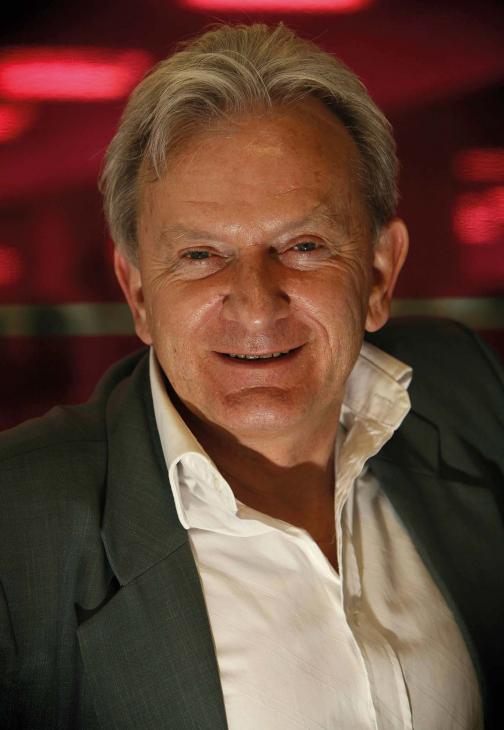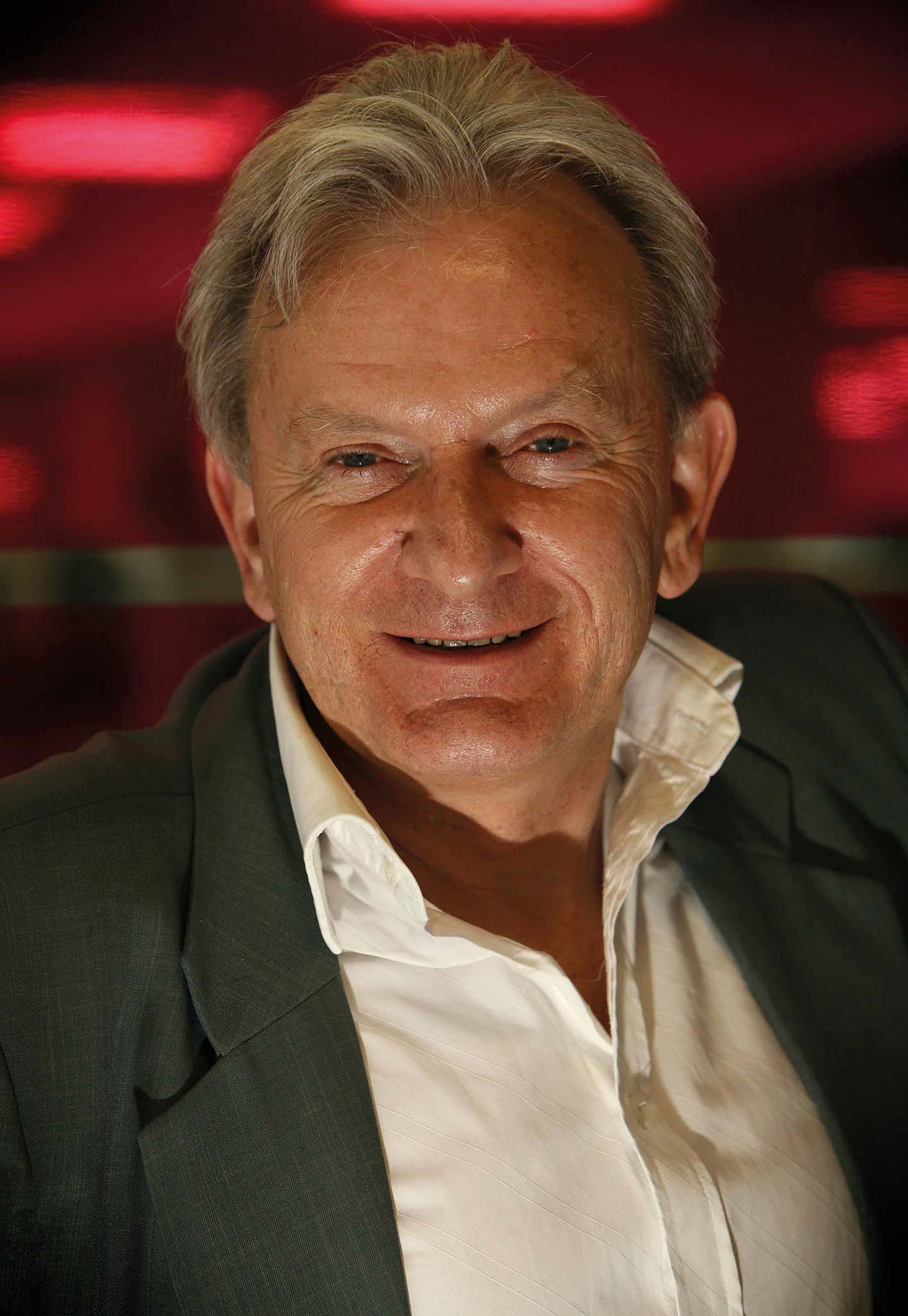 People
PeopleMeet the President
RAS Gold Medalist John Zarnecki discusses Gagarin and Giotto, football and films – and taking up the role of RAS President in May 2016.
extra_body_classes_preprocess_html(Array, 'html', Array)
call_user_func_array('extra_body_classes_preprocess_html', Array) (Line: 261)
Drupal\Core\Theme\ThemeManager->render('html', Array) (Line: 480)
Drupal\Core\Render\Renderer->doRender(Array, ) (Line: 240)
Drupal\Core\Render\Renderer->render(Array) (Line: 158)
Drupal\Core\Render\MainContent\HtmlRenderer->Drupal\Core\Render\MainContent\{closure}() (Line: 627)
Drupal\Core\Render\Renderer->executeInRenderContext(Object, Object) (Line: 159)
Drupal\Core\Render\MainContent\HtmlRenderer->renderResponse(Array, Object, Object) (Line: 90)
Drupal\Core\EventSubscriber\MainContentViewSubscriber->onViewRenderArray(Object, 'kernel.view', Object)
call_user_func(Array, Object, 'kernel.view', Object) (Line: 111)
Drupal\Component\EventDispatcher\ContainerAwareEventDispatcher->dispatch(Object, 'kernel.view') (Line: 186)
Symfony\Component\HttpKernel\HttpKernel->handleRaw(Object, 1) (Line: 76)
Symfony\Component\HttpKernel\HttpKernel->handle(Object, 1, 1) (Line: 58)
Drupal\Core\StackMiddleware\Session->handle(Object, 1, 1) (Line: 48)
Drupal\Core\StackMiddleware\KernelPreHandle->handle(Object, 1, 1) (Line: 28)
Drupal\Core\StackMiddleware\ContentLength->handle(Object, 1, 1) (Line: 32)
Drupal\big_pipe\StackMiddleware\ContentLength->handle(Object, 1, 1) (Line: 191)
Drupal\page_cache\StackMiddleware\PageCache->fetch(Object, 1, 1) (Line: 128)
Drupal\page_cache\StackMiddleware\PageCache->lookup(Object, 1, 1) (Line: 82)
Drupal\page_cache\StackMiddleware\PageCache->handle(Object, 1, 1) (Line: 48)
Drupal\Core\StackMiddleware\ReverseProxyMiddleware->handle(Object, 1, 1) (Line: 51)
Drupal\Core\StackMiddleware\NegotiationMiddleware->handle(Object, 1, 1) (Line: 36)
Drupal\Core\StackMiddleware\AjaxPageState->handle(Object, 1, 1) (Line: 51)
Drupal\Core\StackMiddleware\StackedHttpKernel->handle(Object, 1, 1) (Line: 704)
Drupal\Core\DrupalKernel->handle(Object) (Line: 19)
 People
PeopleRAS Gold Medalist John Zarnecki discusses Gagarin and Giotto, football and films – and taking up the role of RAS President in May 2016.

Prof. John Zarnecki, RAS President 2016–18.
Image Credit: Susannah Ireland/The Times
RAS Gold Medalist John Zarnecki discusses Gagarin and Giotto, football and films – and taking up the role of RAS President in May 2016.
Why did you stand for RAS President?
Having been on Council twice, I felt that I was beginning to understand this strange organization. And having retired from the Open University in 2013, I felt I could find the time – despite working part-time at the International Space Science Institute in Switzerland and chairing ESA’s Solar System & Exploration Working Group. As a young researcher, I found the RAS rather austere and inhospitable, but I think it has improved enormously and Council represents the diverse nature of the Society far better now. I plan to continue the Society on that path.
What got you interested in science?
My father was a professor of history of art and my mother had a degree in politics, philosophy and economics – so I looked for something as far away from these topics as possible. I was always good with numbers and had good science and maths teachers, so it was inevitable from early on that I would end up as a physicist or similar.
Who has been the biggest influence on your career?
My parents were incredibly supportive of my science interests; several teachers, including maths teacher “MIJ” Jones and physics teacher “RIGH” Hughes, both at Highgate School; and Yuri Gagarin, whom I stood a few yards from at Highgate Cemetery in 1961 and who unwittingly provided my “Eureka moment”! And my PhD supervisor, Len Culhane, who fostered an environment where young researchers could take on real scientific responsibility.
What is your greatest professional achievement?
It has to be “landing” on Titan with the Huygens probe in 2005. This is closely followed by flying past Halley’s Comet at 594 km with Giotto in 1986. Both were, of course, the achievements of large teams.
Which astronomical body would you like to visit?
It has to be Titan. I’d love to see my beloved Huygens probe, which is on the floor of a dried up lake bed, relatively undamaged, probably having settled a few centimetres into the gravel. After 10 years of possible drizzle of liquid ethane and methane and perhaps hydrocarbon gunge, I’d love to see what it looks like. In one of my papers that I am most proud of, “Wind driven surface waves on Titan” [2000 J. Geophys. Res.], we predicted that compared with Earth, sea waves would be much slower, more separated and much higher. So I’d love to go and check that for myself too!
What do you do for fun?
What’s fun? I love to watch films and football. Films can move me, make me laugh and cry, move me to anger and pity – in fact, the whole range of human emotions. Football is the same. I was at Wembley in 1966 to see England lift the World Cup and, in the early 1970s, found my true football love in Crystal Palace. I also enjoy “fixing” things – broken cars, boilers, washing machines and roofs. There’s an overlap with fixing space instruments – the logic is the same! But it’s hard to beat sitting at a café table in the small town of Olonzac in France sharing a coffee or vin rouge with friends.
What keeps you awake at night?
Not much – I’m a deep sleeper. I have slept through two smallish earthquakes – in Hawaii and Indonesia – which were large enough to shake the furniture, apparently, but not to do much damage. Ironically, the only earthquake which did keep me awake was in Milton Keynes (the 2008 Lincolnshire Earthquake).
What’s your advice for an early-career scientist?
You need to be “thick-skinned” – career paths don’t always follow the textbook. After my first postdoc, no university posts were available. I took a job in the aerospace industry working on the Large Space Telescope – later known as HST. It stood me in good stead when I moved back into academia as project manager on one of Giotto’s instruments. That also introduced me to the solar system – previously I had been an X-ray astronomer. Opportunities are few and far between – so be prepared to change direction.
How often do you look through a telescope?
A long time ago I observed with large telescopes in Hawaii, Australia, South Africa, Chile and Herstmonceux. Now, I don’t possess a telescope, just binoculars – though I should. But in rural Languedoc, my wife and I sit on the veranda looking at “La Voie Lactée”, watching meteor showers or Iridium flares or waving at Tim Peake or getting to know the constellations better. It is still an awesome experience.
What big question would you like to see answered?
It has to be “Are we alone?” The progress of science in my lifetime has been absolutely enormous, but are we any closer to answering that question? There are only two possible answers, of course: yes or no. And, as somebody said, either is mind-boggling! And either answer is still perfectly feasible.
John Zarnecki is director of science, International Space Science Institute, Bern, Switzerland.
If you would like to submit an article to A&G Forum then please go here.